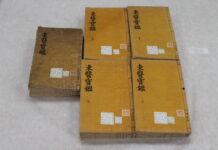By Simon Kim, Professor, South Baylo University
The reason for completing the cosmology of materialism in modern philosophy is simple. This is because nature is defined as a substance that can be understood only in terms of quantity. This is because nature is assumed to be perceived only by the sense perception. And above all, it is because material nature, which is composed of the subjective experience of the perceiver, was considered an objective world itself. Whitehead criticizes these three false ideas in a following summary:
The substance-quality doctrine of actuality.
The sensationalist doctrine of perception.
The Kantian doctrine of the objective world as a construct from subjective experience.
(Whitehead, Process and Reality, 1978: 156)
As revealed in Plato’s view of the universe in Timaeus, the reality of nature is a combination of existence and creation. In other words, it is the alteration of being and becoming. The experience of nature is a feedback between Yin/ Yang and AE/ AO which represent existence and creation. When the creative becoming part disappeared in nature, the concept of life became impossible. Whitehead was searching for a model of the self and its experience of the world that was adequate to our experience. The experience of life and spirit is a universal and valid common-sense experience that anyone can have.
If the conception of Jingqi and Shen (精氣神) is denied, there is nothing more to say about the worldview of Asian medicine based on then I Ching’s view of life. Yinyang-Wuxing contains the concept of continuing life and spirit, which is the throne of nature. Now is the time to explain that the concept of all things (萬物) in East Asian philosophy agrees with the concept of society in the organic philosophy. In the previous columns, The Union of Heaven and Human (June), Yin Yang and the Wuxing (July, August) were explained in parallel with Whitehead’s cosmology and basic concepts.
Some Yinyang Wuxing nexus display “social order” due to shared characteristics mutually prehended. This mutual prehension of shared characteristics promotes intensity in the nexus. Whitehead called these nexus with social order societies and described four major kinds of society: enduring objects, corpuscular societies, structured societies, and living societies.
Given this nesting of societies, one within the other, in Whitehead’s view of the world, one could say that the universe is a vast network of experiential entities in relationship with one another. Hence the term panexperientialism (凡經驗主義) has also been used to describe one of the dominant characteristics of Whitehead’s philosophy of organism. (Olav Bryant Smith, « The Social Self of Whitehead’s Organic Philosophy », European Journal of Pragmatism and American Philosophy [Online], II-1 | 2010, Online since 01 July 2010)
A rock is nothing else than a society of molecules, indulging in every species of activity open to molecules. This lowly form of society lasts billions of years. Human beings are a particularly complex society that is an example of a living society. The human body has adjusted over time to changes in the environment, allowing a dominant, personally ordered, enduring object, which we could refer to as the self, to emerge. The self is nested within a relatively friendly environment. With the body, it forms a society. The body is nested within a relatively friendly environment. With this environment, it forms a society. (ibid)
Therefore, the worldview of the two philosophies, Qi philosophy and the philosophy of organism, has to be naturally connected with ecology. Imagine your existence as matters, cells, tissues, organs, soul, and spirit in every phases of organic/ qi societies. They are some kind of societies themselves. Similar world view produces similar concepts as below:
Philosophy of Eastern medicine: Union of Heaven and Earth, Qi, Yinyang, Wuxing, Myriad things
Philosophy of Organism: Pan-experientialism, Actual Entity, Actual Occasion, Nexus, Society
In order to integrate these two philosophies, Eastern medicine and organic philosophy, we can prepare the new publication of the Journal of Qi Society.









































